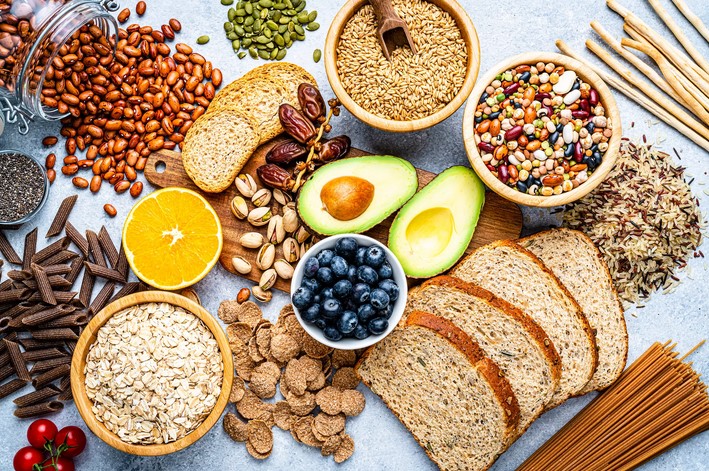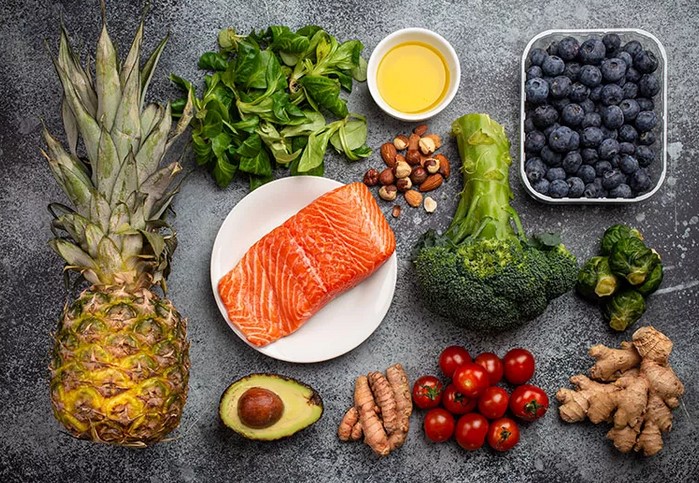 Metabolism plays a crucial role in how your body processes energy, burns fat, and supports overall health. The rate at which your body burns calories can impact your weight management, energy levels, and even the efficiency of your workouts. While some factors, like genetics and age, can influence metabolism, Eating for Metabolism Boost can significantly improve its efficiency. By incorporating certain foods into your daily routine, you can help stimulate your metabolism, enhance fat burning, and keep your body running at its optimal speed. In this article, we will explore the best foods to speed up your metabolism and why they work.
Metabolism plays a crucial role in how your body processes energy, burns fat, and supports overall health. The rate at which your body burns calories can impact your weight management, energy levels, and even the efficiency of your workouts. While some factors, like genetics and age, can influence metabolism, Eating for Metabolism Boost can significantly improve its efficiency. By incorporating certain foods into your daily routine, you can help stimulate your metabolism, enhance fat burning, and keep your body running at its optimal speed. In this article, we will explore the best foods to speed up your metabolism and why they work.
1. The Science of Metabolism: Understanding the Process
Metabolism refers to the biochemical processes that occur within your body to convert food into energy. It involves two key components:
- Catabolism: This is the process where the body breaks down food into smaller molecules (such as glucose and fatty acids), which are then used for energy.
- Anabolism: This is the process of building up molecules and tissues, including muscle growth, that are essential for bodily functions.
Metabolism is influenced by a variety of factors, including your basal metabolic rate (BMR), which is the rate at which your body uses energy while at rest. While it’s impossible to drastically alter your BMR, Eating for Metabolism Boost focuses on foods and habits that can enhance your metabolic rate, allowing your body to burn more calories throughout the day.
1.1. Factors That Affect Metabolism
- Age: As you age, your metabolism tends to slow down. This is partly due to a decrease in muscle mass and hormonal changes.
- Muscle Mass: Muscles require more energy to maintain than fat. The more muscle mass you have, the higher your metabolism.
- Activity Level: Exercise, particularly strength training and high-intensity interval training (HIIT), can increase metabolism temporarily and help preserve muscle mass.
- Hormones: Hormones such as thyroid hormones, insulin, and cortisol play a significant role in regulating metabolism.
- Genetics: Your genetic makeup can influence how efficiently your body burns calories.
By making strategic changes to your diet, you can counteract some of these effects and revitalize your metabolism.
2. Foods That Help Boost Metabolism
Several types of foods are known to naturally enhance metabolic function. These foods work in various ways—some help increase the thermic effect of food (TEF), others support muscle mass growth, and some regulate hormones that control fat-burning processes.
2.1. Protein-Rich Foods
One of the most effective ways to boost metabolism is by incorporating more protein into your diet. Protein has a higher thermic effect than fats and carbohydrates, meaning it takes more energy for your body to digest and process. This leads to a temporary increase in metabolic rate after eating protein-rich meals.
- Chicken and Turkey: Lean poultry is an excellent source of protein that can help you build and maintain muscle mass.
- Fish: Fatty fish like salmon, tuna, and mackerel provide both protein and healthy omega-3 fats, which have been shown to increase fat oxidation.
- Eggs: Eggs are not only rich in protein but also contain essential amino acids that support muscle growth and recovery.
- Legumes: Beans, lentils, and chickpeas are packed with protein and fiber, helping to keep you full while revving up your metabolism.
2.2. Green Tea and Coffee
Both green tea and coffee contain caffeine, a natural stimulant known to increase metabolism. Caffeine can temporarily increase your metabolic rate and enhance fat-burning, especially during exercise. Green tea also contains catechins, particularly epigallocatechin gallate (EGCG), which has been shown to promote fat oxidation.
- Green Tea: Contains antioxidants that can increase metabolic rate and help with fat loss, especially when consumed consistently over time.
- Black Coffee: Drinking a cup of coffee can boost metabolism and improve performance during workouts, thanks to the caffeine content.
However, it’s important to note that the effects of caffeine are temporary and should be consumed in moderation to avoid potential side effects like anxiety or sleep disturbances.
2.3. Whole Grains and Fiber-Rich Foods
Whole grains are complex carbohydrates that require more energy to digest compared to refined carbs. This means your body burns more calories while processing these foods, giving your metabolism a slight boost. Additionally, foods high in fiber help to regulate blood sugar levels and improve digestion, both of which are essential for maintaining a healthy metabolic rate.
- Oats: High in fiber and beta-glucan, oats help regulate blood sugar and improve cholesterol levels.
- Brown Rice: A whole grain that is rich in magnesium, a mineral that plays a role in energy production and muscle function.
- Quinoa: Quinoa is a complete protein source and high in fiber, which can help reduce appetite and promote fat burning.
Fiber-rich foods like fruits, vegetables, and legumes also promote a healthy gut microbiome, which is important for efficient metabolism.
2.4. Healthy Fats
While many people believe fats slow down metabolism, the truth is that healthy fats can actually support metabolic function by reducing inflammation and helping to regulate hormones that control fat storage. Omega-3 fatty acids, in particular, have been shown to improve fat-burning and insulin sensitivity.
- Avocados: Rich in monounsaturated fats, avocados can help support metabolism and reduce inflammation.
- Olive Oil: A key component of the Mediterranean diet, olive oil is rich in healthy fats that can enhance fat burning.
- Nuts and Seeds: Almonds, walnuts, and flaxseeds provide omega-3 fatty acids and fiber, both of which help regulate metabolic function.
2.5. Spicy Foods
Spicy foods, particularly those containing capsaicin (found in chili peppers), have been shown to increase metabolism. Capsaicin works by stimulating thermogenesis, the process by which your body produces heat and burns calories. Adding spicy ingredients to meals can temporarily increase your metabolic rate and help with fat burning.
- Hot Peppers: Incorporating chili peppers into your meals may help promote a modest increase in metabolism.
- Mustard: Mustard seeds contain compounds that can help improve thermogenesis and accelerate metabolism.
3. Tips for Maximizing the Effectiveness of Eating for Metabolism Boost
While the foods mentioned above can help boost your metabolism, there are other strategies to ensure you’re getting the most out of your diet and lifestyle.
3.1. Eat Regular, Balanced Meals
Skipping meals can slow down your metabolism, as your body enters a state of conservation. Eating smaller, more frequent meals throughout the day can help keep your metabolism active. Focus on a balanced diet that includes protein, fiber, and healthy fats in every meal to ensure steady energy levels and metabolic efficiency.
3.2. Stay Hydrated
Dehydration can lead to a decrease in metabolic efficiency. Drinking plenty of water, especially before meals, can help enhance digestion and the thermic effect of food. Cold water, in particular, has been shown to slightly boost metabolism as your body works to warm it up.
3.3. Pair Diet with Exercise
While Eating for Metabolism Boost is essential, pairing it with physical activity can yield even better results. Regular strength training, high-intensity interval training (HIIT), and cardio exercises can all increase metabolic rate and promote fat loss. Building muscle mass through exercise will further enhance your body’s ability to burn calories at rest.
Eating for Metabolism Boost involves more than just consuming specific foods—it’s about making mindful choices that support your body’s natural processes. By incorporating protein-rich foods, healthy fats, fiber, and metabolism-boosting beverages into your daily routine, you can significantly improve your body’s ability to burn calories and support long-term health. Coupled with regular physical activity, these dietary changes can help you achieve a healthier, more efficient metabolism and reach your wellness goals more effectively.








